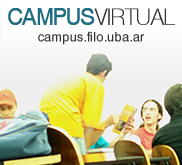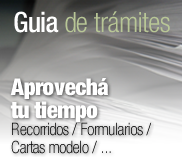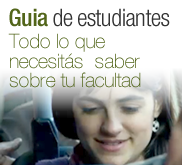VI Colloquium Visions of Antiquity "Non Bona Dicta" University of São Paulo
Destacado:
Destacar
VI Colloquium Visions of Antiquity
"Non Bona Dicta"
University of São Paulo
4th - 7th July 2017
Every two years the University of São Paulo holds a colloquium on Classical Antiquity (Visions of Antiquity Colloquia) organized by the research groups IAC (Imagens da Antiguidade Clássica / Images of Classical Antiquity), VerVe (Verbum Vertere) and LATTIM (Laboratório de Tradução de Textos e Imagens/ Laboratory for the Translation of Texts and Images). Our last event, the Augustan Poetry Conference, presented some important trends and revaluations of Augustan poetry. Next conference, whose theme is "Non Bona Dicta", will be held at the University of São Paulo from 4th to 7th July 2017.
Catullus, by using the litotes non bona dicta (11.16) to speak about the end of his relationship with Lesbia, attenuates the invective that characterizes many of his poems. However, since this euphemism is unusual in Catullus, it calls the attention to the invective that follows it. Inspired by these Catullan lines, our colloquium intends to highlight the mala dicta, in both poetry and prose, as well in the arts, from the Republican Rome to the Severan Period. To “speak ill” of someone was a common practice in Rome, as well as it is among us. However, what we notice nowadays is the absence of systematic protocols to regulate invective, since the behavioral and physical patterns, which are the basis of the mala dicta, are obviously variable. Would there be other issues at stake at Rome except for those of rhetorical and poetical nature, even though the invective was invariably either a visual or a discursive representation? What elements should be brought forward for the understanding of the invective in literature and arts, at the urbs and at the provinces? To what extent are such discourses and images necessarily nuanced by poetical, rhetorical and cultural patterns? What are the protocols beyond the epidictic discourse categories? Can we say that the status of invective from Ancient Greece to the Era of Constantine remains the same? Is the vituperation of origin, of physical characteristics and of character essentially transhistorical or transitory?
Confirmed speakers: Andrew Feldherr (Princeton), Stephen Harrison (Oxford), Andrea Cuchiarelli (La Sapienza, Rome), Luigi Galasso (Università Cattolica/Milano), and Marcos Martinho (University of São Paulo).
Organized by Paulo Martins, Alexandre P. Hasegawa and João Angelo Oliva Neto
1. Papers are invited by e-mail attachment to nonbonadicta2017@gmail.com. Deadline: February 1, 2017.
2. Blind review policy: a. All papers are reviewed by an anonymous Program Committee selected by the Experts Committee to represent the range of interpretive traditions. The author's name, institution, or references pertaining to the identity of the author must be omitted from the paper, notes, and bibliography.
b. The e-mail accompanying the submission must include the author’s name, the title of the paper, address, telephone, and e-mail address.
3. Papers must be written in English, Portuguese, French, Italian, and Spanish.
4. Submission implies that the paper is entirely the author’s own unpublished work and that, where appropriate, the contributions of others are acknowledged.
5. Papers may not exceed 3,000 words of text (30 minutes’ reading time), exclusive of footnotes and bibliography. Longer papers non will be forwarded to the Program Committee; abstracts will not be considered for the program.
6. Papers may be submitted in MS Word™, rtf, or pdf (and pdf is preferred if untransliterated Greek is used).
7. Because papers selected for presentation are collected and provided to meeting participants, please observe the following conventions: single-spacing, 1-inch margins on all sides, pages numbered, 12-point font for text, 10-point for footnotes.
8. Only one submission per author will be considered.
9. Receipt of papers will be acknowledged by e-mail.
10. Decisions will be reached by April, 2017 and authors will be notified by e-mail.
11. For current information about the meeting, consult us nonbonadicta2017@gmail.com.
Paulo Martins
University of São Paulo
Professor Paulo Martins
Livre-Docente de Língua e Literatura Latina
Universidade de São Paulo
Pesquisador - CNPq
Av. Prof. Luciano Gualberto, 403, sala 4
Cidade Universitária - São Paulo - SP
Livre-Docente de Língua e Literatura Latina
Universidade de São Paulo
Pesquisador - CNPq
Av. Prof. Luciano Gualberto, 403, sala 4
Cidade Universitária - São Paulo - SP
CEP: 05339-970
Brasil
CV
Brasil
CV




